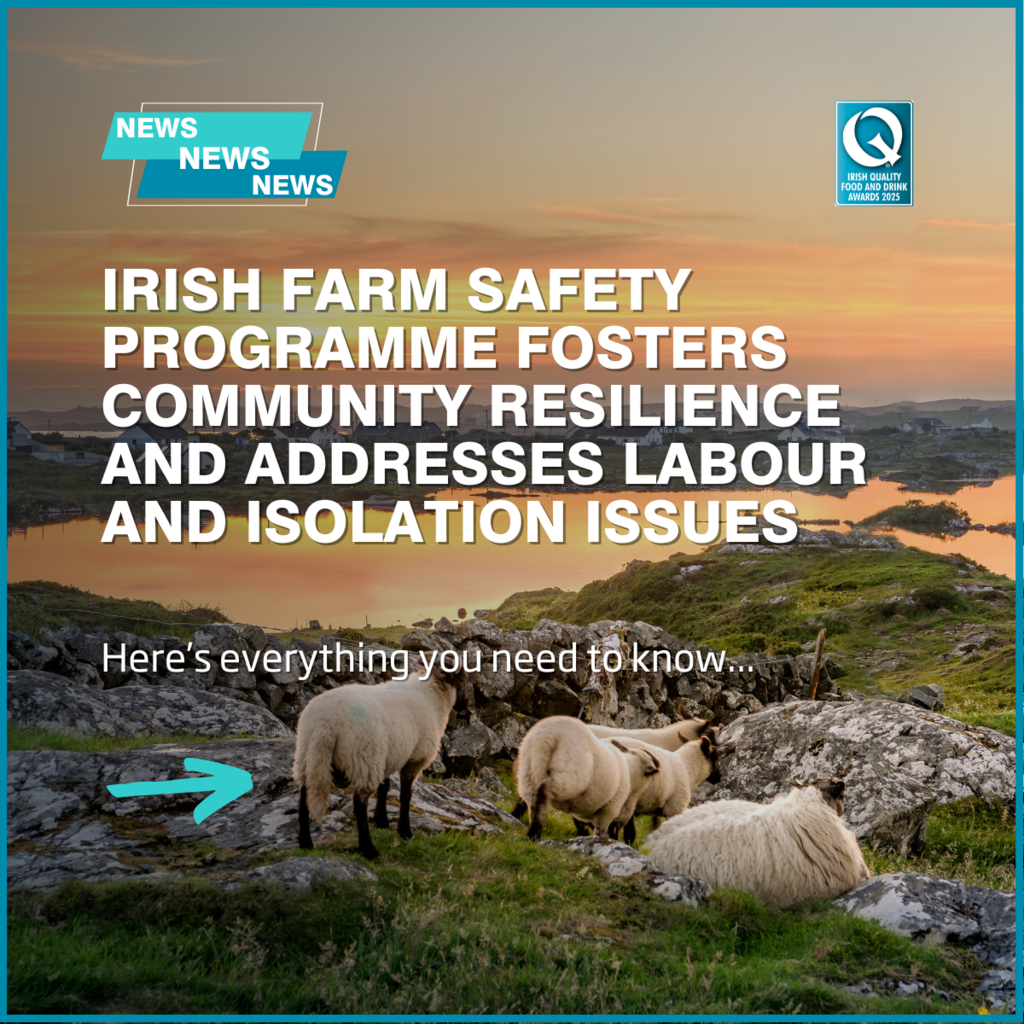
Irish farm safety programme fosters community resilience and addresses labour and isolation issues
The new Farm Safety Community Champion programme aims to combat social isolation and labour shortages among Irish farmers by strengthening local networks and promoting safer farming environments through community-led outreach and training.
A new farm safety programme has been launched in Ireland aiming to tackle the growing concerns of labour shortages and social isolation among farmers, while promoting safer and healthier working environments on farms. The initiative, called the Farm Safety Community Champion programme, was announced by Irish Rural Link and seeks to build stronger local farming networks by appointing regional champions who will work to enhance farmer safety and wellbeing within their communities.
Funded by the Department of Agriculture, Food and the Marine, the programme responds to the decline of local farming networks that has contributed to increasing isolation and workforce challenges in rural Ireland. It involves training nine Farm Safety Community Champions from diverse backgrounds such as farming, teaching, and community mentoring. These champions will be key local figures responsible for connecting farmers to supports and their wider communities, delivering farm safety and wellbeing talks at marts and community centres.
To assist the champions, a comprehensive manual has been developed, providing resources and guidance for these outreach activities. Irish Rural Link is also encouraging communities to organise ‘Farmer’s Haggart’ events, led by these champions, which encourage farmers to help one another with straightforward farm tasks, fostering social support and practical collaboration.
Irish Rural Link CEO Seamus Boland emphasised the importance of community support during challenging times, pointing to market fluctuations, unpredictable weather, and rising isolation as factors necessitating stronger rural networks. He expressed hope that this programme would facilitate support, strengthen bonds, and build a more inclusive future for farmers in Ireland.
Farming remains one of the most hazardous occupations, with high fatality rates and significant stress factors impacting mental health. The Farm Safety Community Champion programme, therefore, represents a community-driven approach to addressing these risks by reconnecting farmers with their peers and supports. Information about local champions and how to organise Farmer’s Haggart events is made available through the Farmers4Safety website.
This initiative complements other ongoing efforts to improve farm safety and health. For example, the Farmers4Safety Project, funded by the EU's Rural Development Programme, has been working in counties with high farm fatality rates such as Cork, Tipperary, and Wexford. This project emphasizes peer-to-peer mentoring to shift farmer attitudes and encourage sustained safety practices across farming communities. Over an 18-month period, Farmers4Safety successfully created networks of trained mentors who engaged directly with farm families to exchange knowledge, conduct risk assessments, and foster safer work environments.
Similarly, the FarmConnect programme, co-funded by the Department of Agriculture and the EU, focuses on improving both physical and mental wellbeing among Irish farmers. Initially piloted in Waterford and Roscommon, FarmConnect delivers evidence-based training aimed at empowering farmers to make better decisions about their health and safety. The programme is designed to be scalable nationally to address the wide-ranging pressures currently faced by the farming sector.
In geographically isolated regions such as North West Connemara, the FORUM Connemara Farm Health & Safety initiative addresses specific challenges related to poor mobile coverage and limited access to emergency supports. It promotes practical, low-cost safety measures and delivers tailored training to improve on-farm health and safety awareness among local farmers and their families.
Collectively, these projects highlight a growing recognition in Ireland that enhancing farm safety and wellbeing requires both attitudinal change and stronger community connections. They adopt community-led, peer-supported methods that go beyond regulatory compliance, aiming instead to build resilient rural networks that offer farmers practical help and emotional support.
Irish Rural Link, which launched the Farm Safety Community Champion programme, has a history of representing disadvantaged and marginalised rural groups since its establishment in 1991. Its latest effort is part of a broader trend of integrating farm safety into everyday rural life by fostering solidarity, communication, and mutual assistance among farmers.
